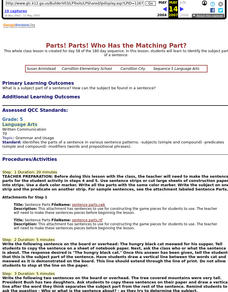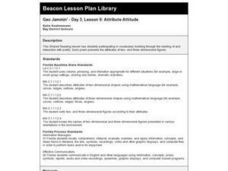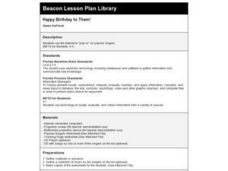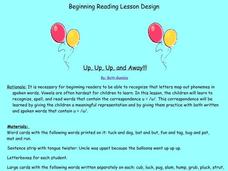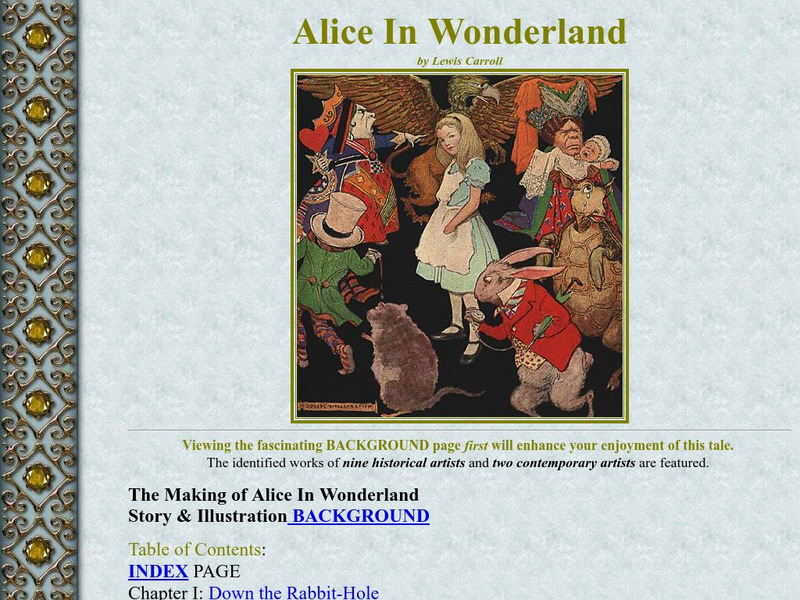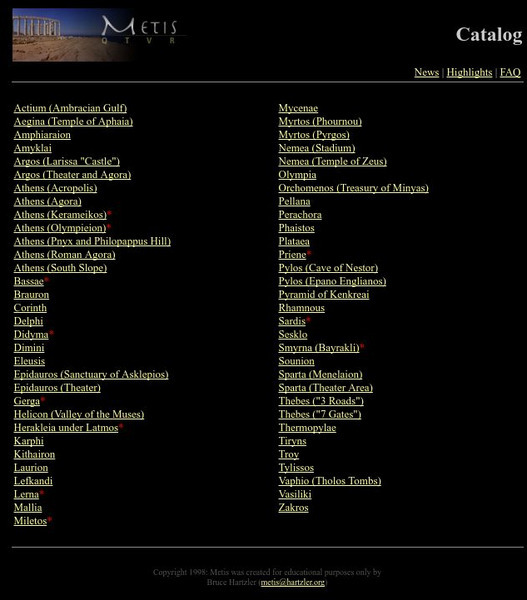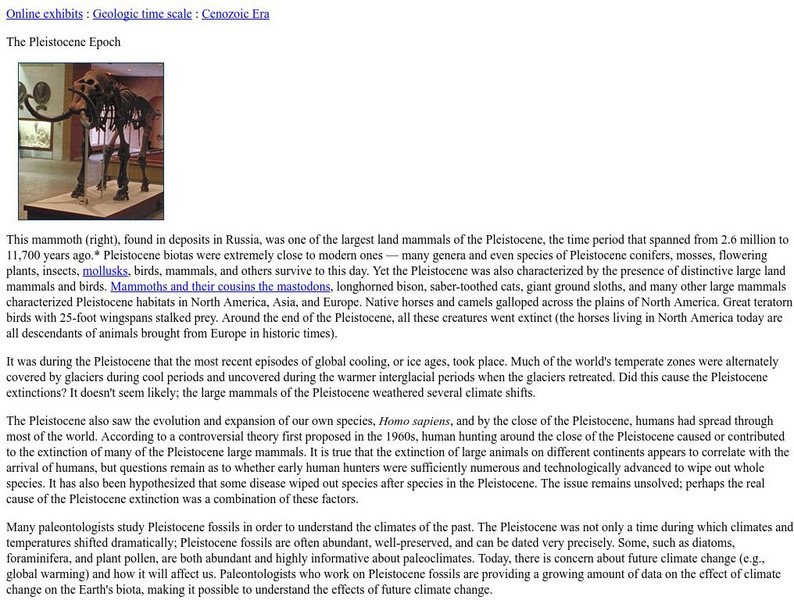Curated OER
Parts! Parts! Who Has the Matching Part?
Fifth graders identify the subject part of a sentence. They receive randomly distributed teacher-made sentence parts. They have either a subject part of a sentence or the remainder of the sentence.
Curated OER
Cleansing, Sparkling Koos
Students explore the importance of water conservation and investigate how plants clean water.
Curated OER
Geo Jammin' - Day 3, Lesson 9: Attribute Attitude
Second graders read poetry and build their vocabulary through use of the puppet Geo George.
Curated OER
This Lesson is Totally Trippy Man
Third graders interview parents, friends and neighbors to find examples of slang terminology from previous decades. They write slang words and their definitions and chart current and previous appropriate slang on a poster.
Curated OER
Happy Birthday to Them!
Third graders use a search engine to search the Internet and find the birthdates of the singers listed on the Popular Singers Worksheet. They provide the URL address from which they obtain their information for each singer.
Curated OER
March Market
Students role play a living wetland food web. They trace the food web associated with the items in their lunch.
Curated OER
Animals in Japan
Students compare and contrast common animals children love and have as pets in Japan and America in this early elementary lesson. The culminating project is an original work of art by each student depicting an animal of their choice.
Curated OER
Up, Up and Away
Students recognize the short vowel u in written and spoken language. Through matching and listening activities, they discriminate the vowel sound /u/ from other phonemes. Students identify the phoneme and letter in words and pictures.
Curated OER
Yummy in My Tummy
Students explore phonemes in spoken words. They discuss the correspondence u=/u/. Students identify a meaningful representation for the phoneme and practice identifying /u/ in both written and spoken words. Students learn a tongue...
Curated OER
Spellbound
In this crossword activity, students complete a crossword puzzle by solving a variety of clues. For example, "Rome is the capital of this boot-shaped country."
Curated OER
Beginning Analogies 8
In this analogies worksheet, learners study the pairs of words and choose the answer that best expresses a relationship similar to the original pair. Students complete 12 problems.
Curated OER
Reading Activity: How Children See the Future
In this reading activity, students read a selection titled, "How Children See the Future," then answer 10 multiple choice questions.
Curated OER
Reintroduce Soft-C
Students review the 2 sounds of the letter c. In this phonics lesson, students choose the letter c each time it appears out of a set of 12 letter and say both its sounds. Students are quiet when another letter is pointed out. Students...
Curated OER
Introduce Soft-C
Students practice the soft letter sound "c" and build letter accuracy. In this soft letter "c" lesson, students are introduced to how the soft letter "c" sometimes borrows the same sound of another letter "s." Students...
The History Cat
The History Cat: Geography: People: Life in Tokyo
Describes features of Tokyo that make it possible for its large population to live there.
Math Cats
Math Cats: Can You Say Really Big Numbers?
Practice reading and writing out the number words for large numbers.
Other
Bedtime Story Classics Alice in Wonderland
This beautiful online edition of the Lewis Carroll classic is written in large text for easy legibility, and includes illustrations from eleven different versions of the story. It also includes background information on the writing of...
A-Z Animals
A Z Animals: Animal Facts: Lynx (Felis Lynx)
Investigate the world of the Lynx and discover information on the appearance, habitat, and behaviour of this large feline. Includes images and statistics.
Chicago Zoological Society
Chicago Zoological Society: Zoo Explorer: African Lion
In addition to quick facts, the Brookfield Zoo offers information on the social and eating habits, appearance, habitat, and other characteristics of the African lion.
The BIG zoo
The Big Zoo: Jaguar
Site provides some interesting facts about these large cats. Contains a physical description, information on their diet, habitat, social structure as well as birth and offspring.
Other
Metis: Catalog of Ancient Greek Archaeological Sites
A very large collection of interactive photographs of archaelogical sites in Greece and Turkey. Users can pan around the sites, zoom in for closer looks, or click on hot spots to access views of individual elements of the scenes. Some...
PBS
Nova: America's Stone Age Explorers: End of the Big Beasts
Three opposing views about the disappearance of the "megafauna" in North America. What really happened to the wooly mammoth, mastadon, saber-toothed tiger, among other animals?
CommonLit
Common Lit: "Kenyan Discovery: Let There Be Lights to Save Lions" by Nina Gregory
Kenya is a country in East Africa; the capital city, Nairobi, is well-known for its National Park: the world's only game reserve found within a major city. The park's large wildlife population includes baboons, rhinos, gazelles, zebras,...
University of California
Ucmp: The Pleistocene
The UCMP Berkeley provides a brief overview of the Pleistocene Era, including links to more information.


